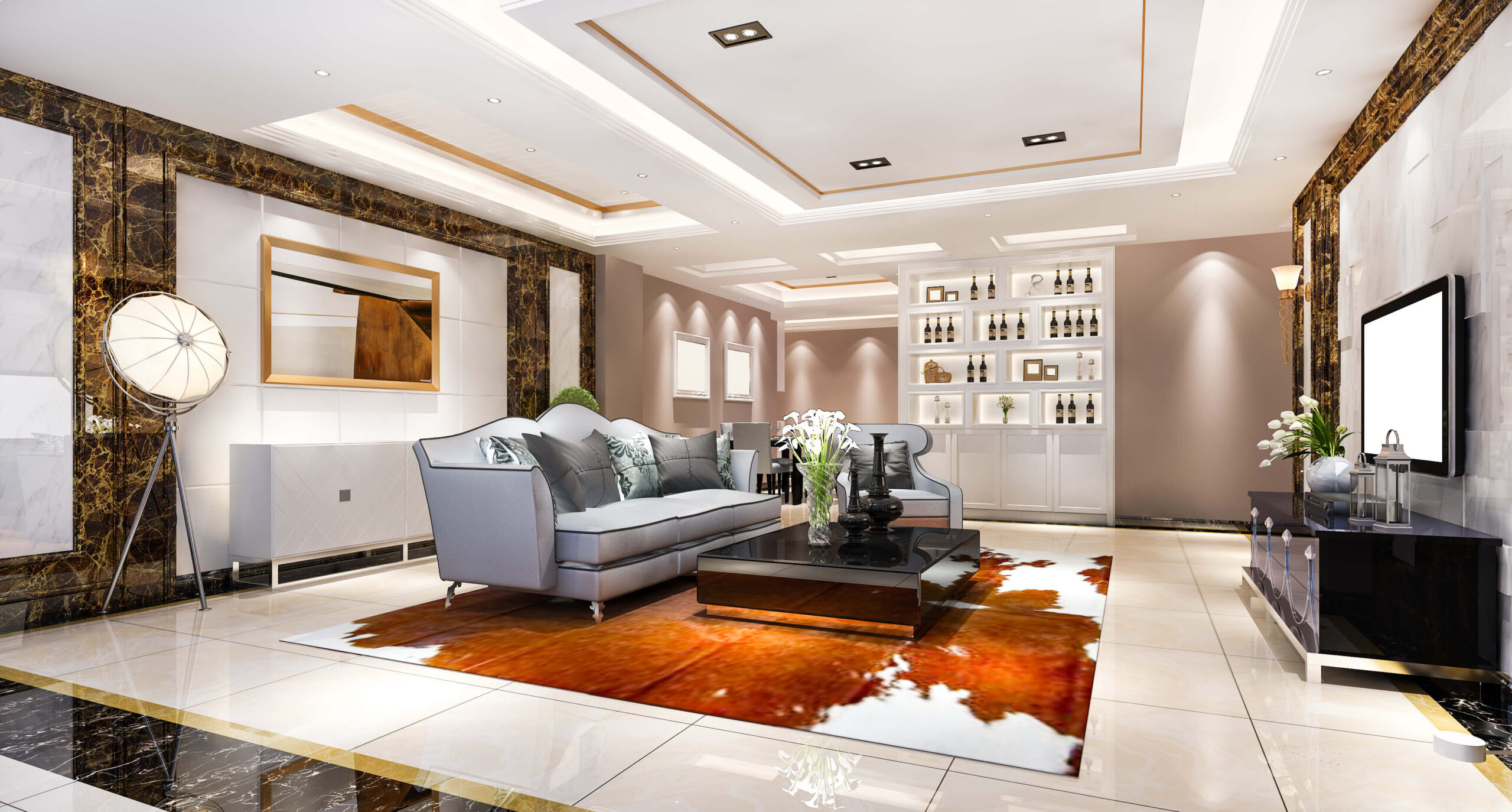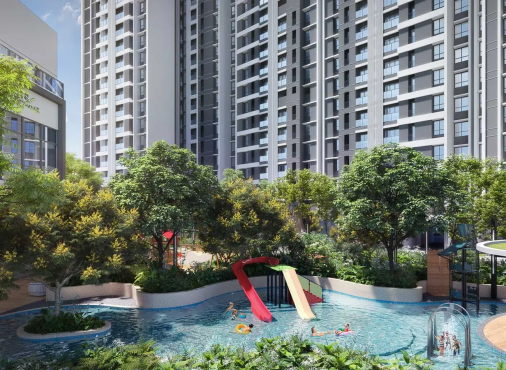The concept of living in luxury apartments has changed in the last 10 years. It is no longer a status symbol among the elite. Modern residences emphasise luxury as an investment for a lifestyle focusing on health, privacy, technology, eco-friendly practices, and distinct branding.
Such shifts were made possible due to the changing demands of consumers and advancements in technology, which in turn create new trends that transform high-end living.
Let’s explore the emerging trends in the luxury apartment market that will define the future and help meet the expectations of potential buyers.
Demand for Wellness-Centric Living Spaces
Wellness living spaces mark a shift in the previously defined standards of living. Luxury amenities demanded by modern consumers go beyond fancy gadgets to physical, mental, and emotional well-being support.
Modern luxury goes beyond aesthetics and incorporates wellness into the design and infrastructure, which includes:
- Wellness zones are complete with zen gardens that facilitate quiet inner peace and guided meditation, as well as soundproof yoga studios.
- Steam showers, aromatherapy diffusers, hydrotherapy jacuzzis and heated flooring transform daily routines into a pampering resort experience in spa-inspired bathrooms.
- Pollutants and excess oxygen are eliminated with optimal efficiency using NASA-certified air-purifying plants, HEPA filters, ionisers, and air quality systems.
- Natural light encourages better sleep and improves circadian rhythms thanks to larger windows, glass façades, and skylights.
- Smart circadian lighting and ambient mood settings that adjust according to the time of day positively influence energy levels and mental well-being.
Developers are working with wellness architects and consultants to create biophilic environments that reconnect residents with nature, even in dense urban landscapes. This fusion of health and design is now a key driver of demand among luxury buyers.
Also Read: Living at Sky Mansions: A Life of Elegance and Panoramic Views
Ultra-Private & Boutique Luxury Developments
In an age of overexposure and constant digital presence, privacy has become the ultimate luxury. High-net-worth individuals (HNWIs), celebrities, global entrepreneurs, and discerning investors are increasingly seeking boutique developments with fewer residences, bespoke amenities, and heightened security protocols.
These ultra-exclusive projects often include:
- Low-density layouts with a limited number of homes per floor or tower ensure reduced foot traffic, noise, and maximum discretion.
- Private-entry elevators that open directly into personal foyers or residences, eliminating shared common areas and adding a layer of exclusivity.
- Sky villas and full-floor residences that provide unmatched space, views, and personalisation are ideal for those who value privacy as much as luxury.
- Customised concierge services, including private chefs, personal butlers, and 24/7 security with biometric access control and surveillance systems.
- Strategic locations in upscale enclaves that are far away from the city’s bustle yet well-connected, offering the perfect blend of convenience and seclusion.
In Mumbai, for example, neighbourhoods like Pali Hill, Bandra West, and parts of South Mumbai are witnessing a surge in limited-edition boutique residences, where each unit is tailor-made and sold as an experience rather than just square footage.
Also Read: The Elite Lifestyle in Pali Hill: Why It’s the Most Desirable Address in Mumbai
AI-Enabled Lifestyle Management
The integration of artificial intelligence (AI) into luxury residences is not just a trend—it’s a new standard. Smart home technology has evolved from basic automation to intelligent lifestyle management systems that anticipate needs, optimise comfort, and improve efficiency.
Here’s how AI is redefining luxury apartment living:
- 24/7 Virtual Concierge Services: Whether it’s booking flights, making restaurant reservations, or scheduling car services, AI assistants and apps handle daily tasks with ease, acting as digital butlers.
- Smart Home Ecosystems: Centralised apps control everything from lighting and air conditioning to curtains, home theatre systems, and kitchen appliances, all tailored to resident preferences.
- Predictive Maintenance Systems: Sensors and AI tools can alert homeowners about potential appliance breakdowns, water leaks, or HVAC issues, often before they happen, ensuring proactive servicing and zero downtime.
- Voice-activated Assistants and AI-controlled Lighting: Systems like Alexa, Google Home, or proprietary AI hubs allow residents to manage their environment with a simple voice command, ensuring seamless convenience.
This seamless convergence of tech and lifestyle means residents can enjoy a truly connected, efficient, and personalised living experience, whether they’re at home or halfway across the world. For many buyers, this isn’t just a luxury; it’s an expectation.
Integration of Renewable Energy & Sustainability
As climate consciousness rises among luxury homebuyers, sustainability has shifted from a bonus to a core requirement in high-end real estate. Today’s affluent buyers are looking for homes that offer both grandeur and eco-responsibility, pushing developers to incorporate renewable energy solutions and sustainable architecture into luxury apartment design.
Key features in sustainable luxury residences include:
- Solar Energy Integration: Rooftop solar panels not only reduce dependency on grid electricity but also cut down long-term energy costs. In cities like Mumbai and Bangalore, solar-enabled buildings are seeing growing interest from buyers and investors alike.
For instance, in Mumbai, the installation of solar panels has been shown to reduce electricity bills, provide a return on investment within approximately six years, and increase property values, making such properties more attractive to buyers.
- EV-ready Infrastructure: With India’s EV market projected to grow at a CAGR of 49% from 2022 to 2030, developers are future-proofing properties by providing dedicated electric vehicle charging stations within residential parking areas.
- Rainwater Harvesting and Greywater Recycling Systems: These features support efficient water usage, which is especially critical in urban areas prone to water shortages. Luxury projects are now being designed with integrated water management systems that minimise waste and promote resource conservation.
- Energy-efficient Building Materials: IGBC and LEED-certified materials, double-glazed windows, green roofing, and thermal insulation are increasingly used to optimise energy consumption and reduce carbon footprints.
- Green Spaces and Vertical Gardens: Lush landscaping, oxygen-generating plantations, and community herb gardens not only elevate aesthetics but also promote biophilic living, reducing stress and improving indoor air quality.
Final Thoughts
The future of luxury apartment living is intelligent, private, health-focused, sustainable, and brand-driven. For buyers and investors, these evolving trends are more than just lifestyle enhancements. They are strategic choices that add long-term value, exclusivity, and experiential richness to a property.
If you’re seeking a residence that offers all this and more, Rustomjee is leading the way in redefining luxury with innovative, well-crafted spaces across Mumbai. Explore upcoming luxury developments where modernity meets mindful living.
FAQs
- How are branded residences changing the luxury real estate market?
Branded residences combine world-class design with five-star hospitality services, offering unparalleled exclusivity and resale value. These properties cater to ultra-high-net-worth individuals seeking prestige and convenience.
- How does AI technology enhance everyday living in premium homes?
AI brings comfort and efficiency with virtual concierge services, voice-controlled lighting and climate systems, biometric security, and even health-tracking smart mirrors. It transforms traditional luxury into intelligent, responsive living.
- Are boutique and low-density luxury residences gaining popularity?
Yes, there’s a rising preference for boutique developments with fewer units, offering more privacy, exclusivity, and customisation. These homes often include private elevators, sky decks, and personalised service, ideal for discerning buyers.








